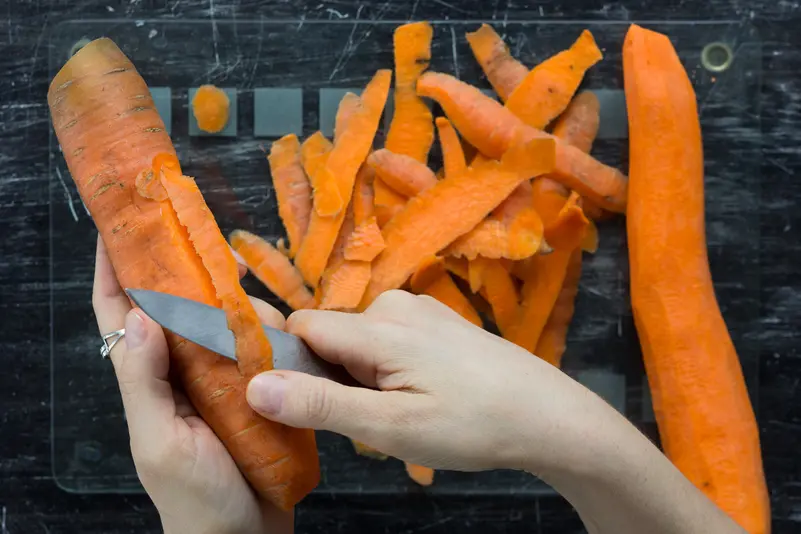Dubai, United Arab Emirates – Carrots are a staple in almost every kitchen, but their peels often end up in the trash, without any thought.
What’s new, according to a report published by the Times of India, is that these thin outer layers are rich in nutrients and can be reused in smart and sustainable ways.
Research published in the International Journal of Pharmacology and Phytochemical Research highlights that carrot peels are rich in antioxidants, dietary fiber, and essential vitamins.
Which makes it more than just kitchen waste.
As awareness of food sustainability grows, smart ways to reuse leftover vegetables are being discovered. Carrot peels, from kitchen experiences to wellness treatments and eco-friendly gardening, can do much more than many expect.
Here are 5 ways to use carrot peels in cooking, gardening, and public health:

1- In soup and broth
Instead of discarding carrot peels, they can be added directly to soups, stews, or vegetable broths.
They add natural sweetness and distinctive flavour, while enhancing the nutritional value of the meal.
Chefs usually recommend washing carrots well before peeling them to ensure the peels are clean and safe.
They can also be dried and ground into a powder to sprinkle on curry dishes and sauces for rich nutritional benefits.
2- In healthy snacks
Carrot peels can be turned into a crunchy, guilt-free snack.
Simply put, it can be mixed with olive oil, salt and spices before baking until crispy.
3- In juices
Those who juice carrots for a refreshing drink can benefit from the peels by adding them directly to a juicer or blender, which increases fiber intake and reduces food waste.

4- In fertilizing and feeding plants
Carrot peels are a great addition to compost piles.
They are rich in organic matter, decompose quickly and provide essential nutrients to the soil.
Gardeners usually mix carrot peels with the remains of other vegetables to form a balanced fertilizer that enriches plant growth.
5- In treating the skin and intestines
Carrot peels contain antioxidants such as beta-carotene, which can promote healthy skin.
Some people make face masks at home by mixing carrot peels with honey or yogurt to get a natural glow.
Although it is not a substitute for professional skin care, it can be considered a sustainable home remedy.
The fiber in carrot peels, when eaten, aids digestion and promotes gut health.

















